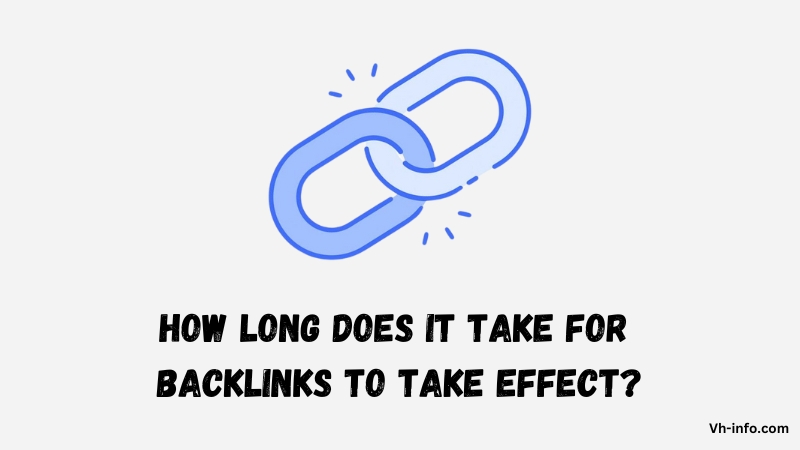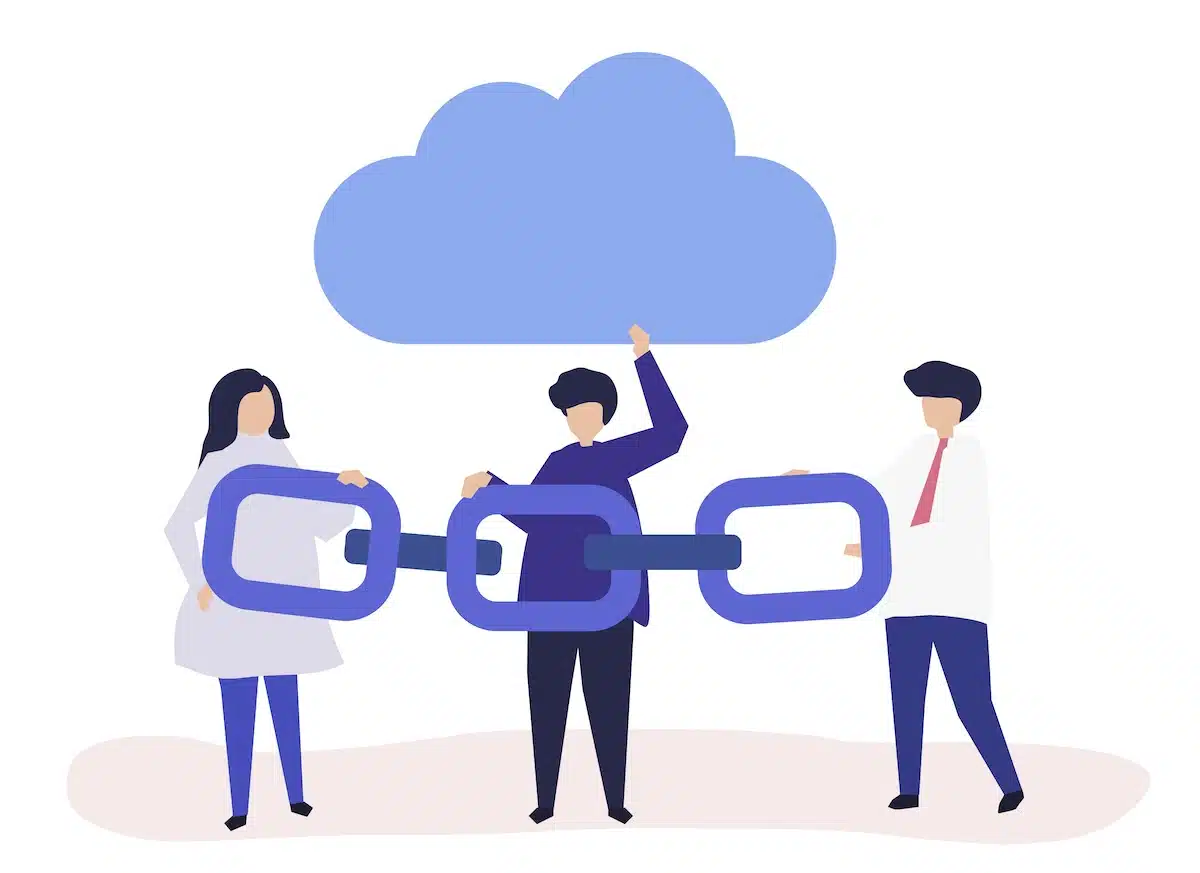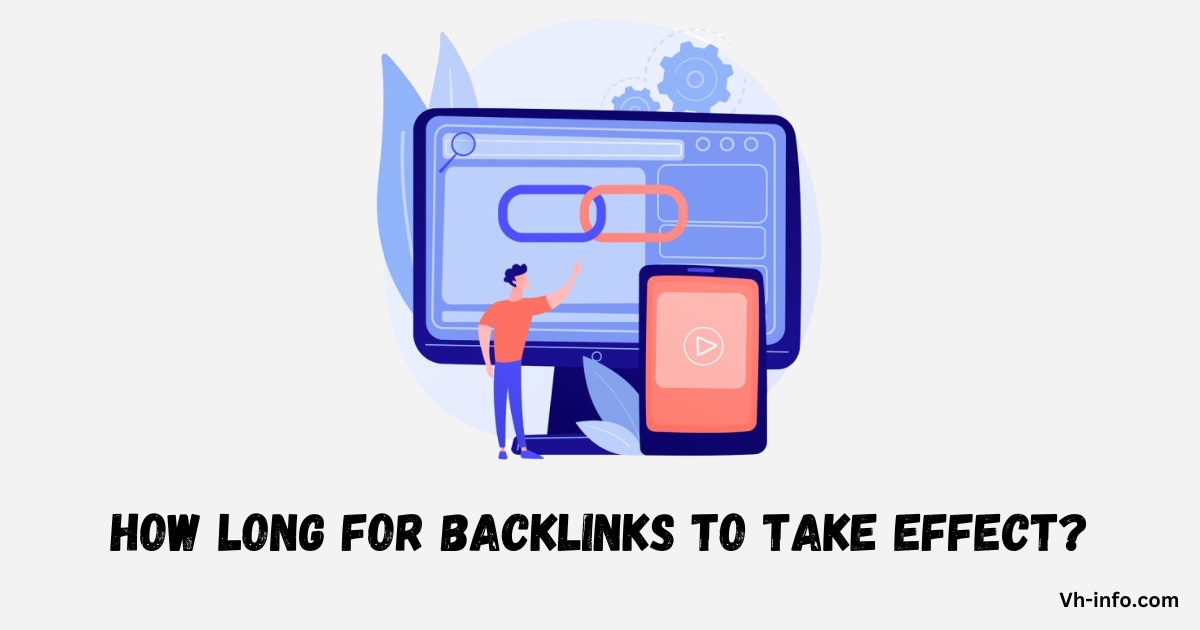Backlinks are one of the most important factors in SEO, serving as a vote of confidence from one website to another. But how long does it take for these links to impact your Google rankings?
As a trusted expert in SaaS link building, VH Info is here to break down this complex topic and provide you with clear, actionable insights to improve your SEO strategy.
Why Are Backlinks Important For SEO Rankings?

Before diving into timelines, let’s recap why backlinks matter for search engine optimization. When a high-quality, relevant website links to your content, it signals to search engines that your site is valuable and trustworthy. This “link juice” helps boost your domain authority and page authority, ultimately improving your rankings in search results. The more high quality backlinks you earn, the better your chances of attracting organic traffic and climbing to the top of Google searches.
How Long Does It Take For Backlinks to Take Effect?

Now for the million-dollar question: how long until you see the fruits of your link-building labor? The answer isn’t clear-cut, as many SEO factors influence the timeline. However, SEO experts generally agree that it takes an average of 10 weeks to see a noticeable impact from a single link.
Keep in mind that this is just an average – some inbound links may yield positive results in as little as 4 weeks, while others could take 6 months or more. The key is to stay patient and consistent with your link-building efforts, as the benefits compound over time.
What Determines the SEO Benefits of Backlinks?

Not all backlinks are created equal. The SEO value of a link depends on various factors, including:
Domain Authority (DA) / Domain Rating (DR)
Links from high DA/DR sites pass more link juice and tend to have a quicker, more significant impact on your rankings.
Page Authority (PA)
Similarly, links from high-PA pages carry more weight than those from low-authority pages.
Link Velocity
A sudden influx of links may trigger Google’s spam filters. Aim for a natural, steady link acquisition rate.
Crawling Time
Search engines need to crawl and index the linking page before the link can affect your rankings.
Anchor Text
Descriptive, keyword-rich anchor text helps search engines understand the context of the link.
Content Strategy
Links to relevant, high-quality content on your site will have a greater impact than those to thin or irrelevant pages.
Type of Backlinks
The type of Link you receive matters alot. Editorial links from authoritative sources tend to be the most valuable for SEO. Avoid spammy tactics like link farms.
Keyword Competitiveness
Links targeting highly competitive keywords may take longer to move the needle than those targeting less saturated terms.
Link Relevance
A relevant backlink helps with faster search rankings compared to a link from website with high domain authority. Links from sites and pages related to your niche will carry more weight than irrelevant links.
Link Placement
Links placed in the main and relevant content area of a page are generally more valuable than those in the footer or sidebar.
Link Diversification
A diverse link profile from various high-quality sources is ideal for SEO. Avoid relying on a single source for all your links.
Domain Age
Links from older, established domains may have a more immediate impact than those from a brand new website with new content.
Timeline For Backlink Results
While the average timeline for backlink impact is 10 weeks, let’s break it down further:
- Weeks 1-4: Search engines crawl and index the new link
- Weeks 4-12: Minor movements in rankings may occur
- Months 3-6: More noticeable improvements in rankings and organic traffic
- Months 6-12: Significant gains in rankings, traffic, and domain authority
Remember, SEO is a long game. Even after the 12-month mark, your link building efforts will continue to pay off as your site climbs in search engine results.
What Type of Backlinks Are Best to Get Results?

At VH Info, we recommend focusing on high-quality, editorial backlinks from authoritative sources in your industry. Guest posts, broken link building, and genuine outreach are all effective tactics. Steer clear of black-hat methods like link buying or link farms, as these can actually harm your SEO in the long run.
Gaining Rankings Effectively Via SEO Strategies
In addition to link building, there are several other SEO strategies you can employ to boost your rankings:
Focus on Quality Over Quantity
A handful of high-quality links will do more for your SEO than a slew of low-quality ones. Prioritize link prospects based on their relevance and authority.
SEO Tools
Invest in SEO tools like Ahrefs, SEMrush to streamline your keyword research, link building, and progress tracking.
Accelerated Website Loading Speed
A fast-loading website provides a better user experience and can indirectly improve your rankings. Optimize your images, leverage browser caching, and minify your code.
Create High-Quality Niche Content
Create link-worthy content that addresses your target audience’s pain points and showcases your expertise. This will naturally attract backlinks over time.
Creating a Fool-Proof Link Building Campaign
Develop a diversified, sustainable link building strategy that focuses on quality over quantity. Set realistic goals, monitor your progress, and continually refine your approach based on results.
FAQ’s:
Is It Possible to Speed Up the Backlink Indexing Process?
While you can’t control search engine crawlers, you can submit your links to Google Search Console to encourage faster indexing.
How Many Backlinks Do I Need to See a Noticeable Effect?
There’s no magic number, as the impact of each link varies. Focus on quality and consistency rather than hitting a specific quota.
Can the Age of a Backlink Affect Its SEO Value?
Older links may carry more weight, as they’ve stood the test of time. However, a mix of old and new links is ideal for a natural link profile.
How Can Google Search Console Help in Monitoring the Effectiveness of Backlinks?
Google Search Console allows you to track your backlinks, indexing status, and organic traffic over time. Use this data to gauge the impact of your link building efforts and identify areas for improvement.
What Role Does Anchor Text Play in the Effectiveness of Backlinks?
Descriptive, keyword-rich anchor text helps search engines understand the context of the link and can positively impact rankings. However, overusing exact-match anchor text can be seen as spammy.
How Does the Freshness of a Website’s Content Affect the Impact of New Backlinks?
Regularly updating your content alongside posting new blog post content shows search engines that your website is active and relevant. This can indirectly boost the effectiveness of new backlinks.
Can the Geographical Location of a Linking Domain Affect my Site’s SEO?
For local businesses, backlinks from local directories and websites can be especially valuable. However, for most sites, the quality and relevance of the link matter more than location.
What is the Impact of Social Signals on Backlink Effectiveness?
While social shares and likes on social media don’t directly impact rankings, they can lead to increased visibility and organic link building opportunities.
Conclusion
Backlinks are a vital component of any successful SEO strategy, but understanding how long they take to impact your rankings can be challenging.
As a general rule, expect to see SEO results within 10 weeks of acquiring a high-quality link. However, the actual timeline depends on various factors, from the authority of the linking domain to the competitiveness of your target keywords and keyword rankings.
At VH Info, we specialize in helping SaaS companies navigate the complex world of link building. Our tools and expertise can help you develop a sustainable, effective SEO campaigns that drives results.
Remember, SEO is a marathon, not a sprint – stay focused on quality, relevance, and consistency, and you’ll see your rankings climb over time.

